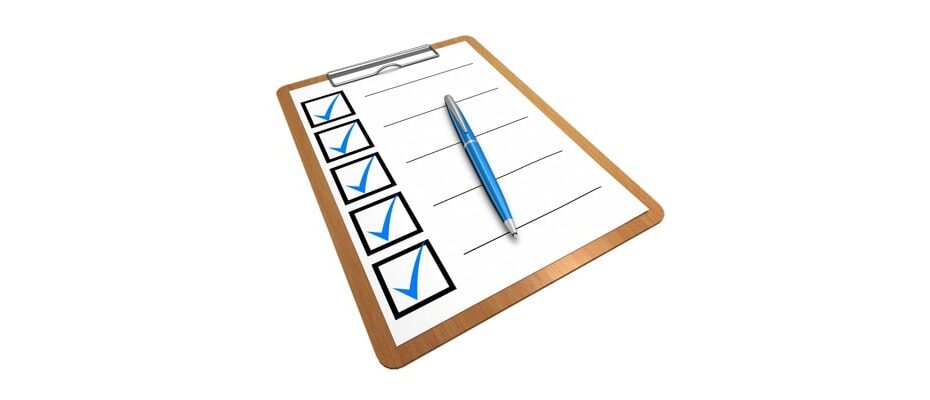This post is the last in a series devoted to the power of a checklist. Check the previous ones if you want to find out why the checklist is an inseparable element of the organization of events, what points should it contain at the planning stage and a few months before its start.
Meanwhile, there is no time for jokes – the event is going to start really soon. This is the last moment when you can revise your plan.
It’s getting hot: 1 week before the event
Shortly before the event, take a closer look at your checklist to ensure yourself that everything is going according to plan, including:
- do all members of your team know what they are responsible for;
- is everything ready, or are there any areas that you still need to work on.
Pre-event madness: 1 day earlier
There is still time to make sure that the machine is well oiled and improve the details (everyone knows that the devil is in the details). So your checklist can now have items like:
- ensuring correct marking at the place of the event: reception, lecture hall, toilets etc.;
- checking audiovisual equipment: sound system, microphones, recorders;
- checking reception supplies: badges, certificates, stapling pens etc.;
- checking the correctness of the settings of training rooms.
3, 2, 1, 0 … start: on the day of the event
This is the day when you will gather the fruits of your hard work. In order for the event to run as planned, your checklist may include the following points:
- team briefing: organize the briefing for the members of your event team in advance; if there are volunteers in it, also include them;
- crisis plan: make sure that each member of your team knows whom he can turn to when he needs support (eg. when a so-called difficult client appears);
- secure contacts: make sure that the contact list for each team member is publicly available
- calming tea: be open to unforeseen situations – life can really surprise you.
Phew… it’s finally over
In this part of the checklist, place the elements of the process that are necessary to close the project with success, eg:
- clean the venue: regardless of whether you do it on your own or whether you outsource this action, you must ensure that you leave the venue intact;
- thank the event team members, volunteers, lecturers and participants;
- send satisfaction surveys;
- summarize the budget;
- do the project summary, including SWOT analysis of the event (strengths and weaknesses, opportunities and threats).
***
A man in his nature is not perfect, he is inconsistent, he makes mistakes, he sometimes forgets about various matters, and above all – he has a tendency not to pay attention to details. Meanwhile, a checklist is a system tool – if well structured, it perfectly supports efficiency, not letting you forget about the most important aspects of the process. The undeniable advantages of this tool include: limiting the risk of making mistakes, optimizing work, improving communication and transferring tasks in a team, motivating to further action. So let’s take a moment to construct it!







